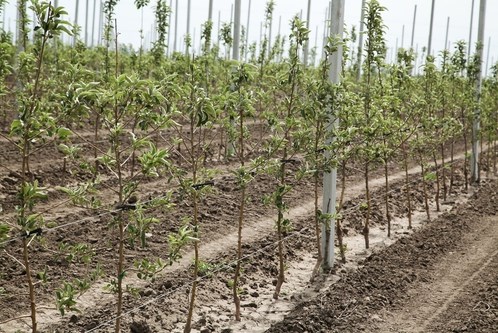
Image Credit: shutterstock.com
July 15, 2016 - 8:30 AM
CENTRAL OKANAGAN - The four Central Okanagan municipalities and the regional district are moving to harmonize their policy and regulations on temporary farm worker housing.
But some Kelowna councillors are openly questioning the effect the policies have on the workers themselves, requiring them to live in temporary quarters in rural areas and walk long distances to access services.
“You see the Jamaican workers all the time, walking down Glenmore to the IGA,” Coun. Mohini Singh said.
Currently, all applications for the installation of temporary farm worker housing must be presented for approval by council before they are submitted to the Agricultural Land Commission.
Housing applications are considered an allowable non-farm use by the commission, however the housing must still meet the requirements of Kelowna’s zoning bylaw.
The agriculture ministry requires the housing be temporary such as a mobile home or trailer or within an existing dwelling or building on the farm.
However, in one recent case, the farm operators without plans or permit had already poured the foundation for a new permanent structure before the city caught wind and forced them to stop.
Rural planning manager Todd Cashin told councillors the harmonization of local policy and regulations will help stop “hopscotching” where farm owners move their housing faciliites to the municipality with the most favourable rules.
Coun. Luke Stack said council is “falling into a trap” by considering accommodation applications individually and agreed with several other councilllors the agriculture ministry needs to rethink their whole approach toward temporary housing.
“That’s the level of policy discussion that needs to take place,” Stack added.
Coun. Gail Given said extended growing seasons means some farms and orchards are operating temporary housing nine months of the year, bringing in different groups of workers (who are only allowed to be here for six months) to cover different aspects of planting and harvest.
She said some of the larger accommodations are neighbourhoods in their own right, which means they should ideally be nearer to amenities and public transportation.
“We would never put new development out in a rural area,” she said.
Given also called for an inventory of temporary accommodation to be compared to the number of temporary farm workers licensed to work in the Central Okanagan.
To contact a reporter for this story, email John McDonald or call 250-808-0143 or email the editor. You can also submit photos, videos or news tips to the newsroom and be entered to win a monthly prize draw.
We welcome your comments and opinions on our stories but play nice. We won't censor or delete comments unless they contain off-topic statements or links, unnecessary vulgarity, false facts, spam or obviously fake profiles. If you have any concerns about what you see in comments, email the editor in the link above.
News from © iNFOnews, 2016